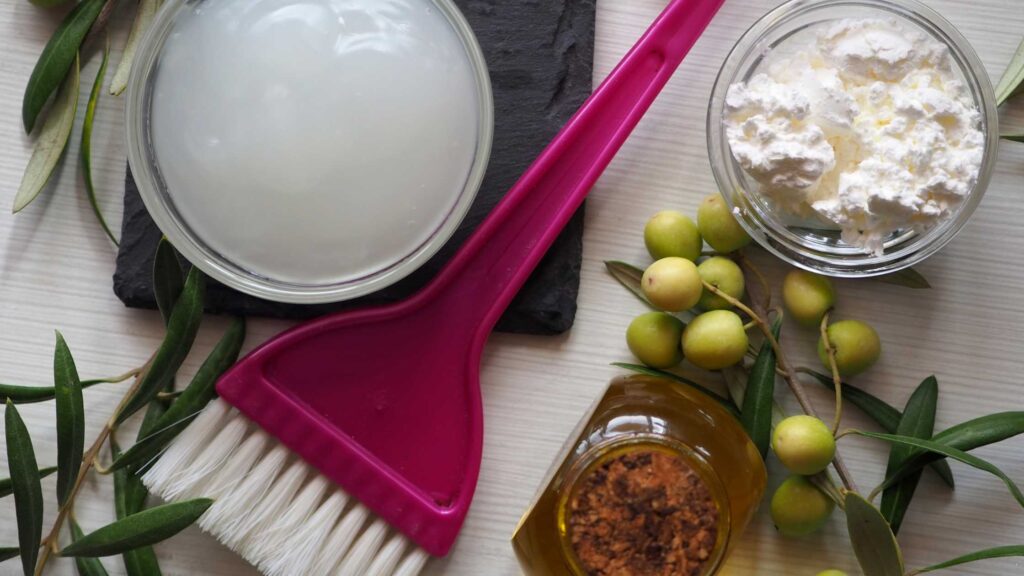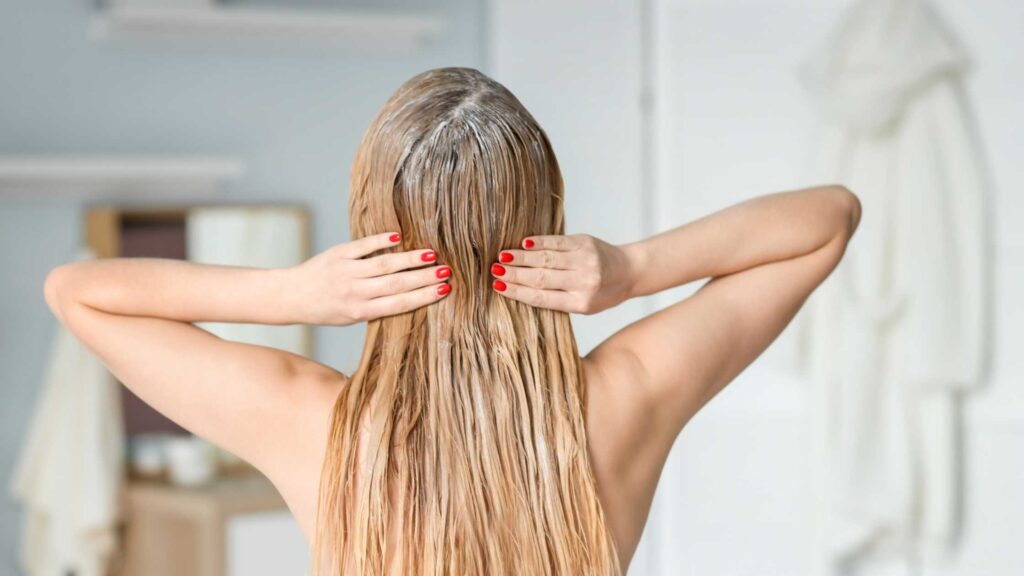Hair loss can be a frustrating concern, but before you reach for chemical-laden treatments, consider the natural route! Homemade hair masks offer a gentle and potentially effective way to combat hair loss by nourishing your scalp and promoting healthy hair growth.
Understanding Hair Loss and Hair Masks
Hair loss can stem from various factors like stress, genetics, hormonal imbalances, and nutritional deficiencies. Hair masks can’t reverse these underlying causes, but they can address some contributing factors:
- Scalp health: Certain ingredients in hair masks can improve scalp circulation and promote a healthy environment for hair growth.
- Moisture: Dry, brittle hair is more prone to breakage. Hair masks rich in moisturizing ingredients can hydrate hair and improve its elasticity.
- Strength: Hair masks with protein-rich ingredients can help strengthen hair follicles and strands, reducing breakage and promoting thicker hair.
Types of Hair Masks for Hair Loss Treatment

There’s a hair mask recipe for every hair type and concern! Here are a few popular options:
- Avocado Hair Mask: Rich in vitamins and healthy fats, avocado nourishes the scalp and strengthens hair. Mash a ripe avocado with olive oil and honey for a deep conditioning mask.
- Egg Hair Mask: Eggs are packed with protein and biotin, which are essential for healthy hair growth. Mix an egg yolk with olive oil and apply it to your scalp and hair.
- Yogurt Hair Mask: Yogurt provides a dose of probiotics that may benefit scalp health. Combine plain yogurt with honey and lemon juice for a clarifying and moisturizing mask.
- Fenugreek Hair Mask: Fenugreek seeds are a natural source of protein and have been used traditionally to promote hair growth. Soak fenugreek seeds overnight, grind them into a paste, and mix with aloe vera gel for a scalp-stimulating mask.
How to Apply Different Hair Masks to Hair
- Preparation: Before applying any mask, ensure your hair is clean and detangled. Patch test a small amount of the mask on your inner elbow to check for allergies.
- Scalp Focus: Hair loss often starts at the scalp. Gently massage the hair mask into your scalp, paying attention to areas with hair thinning.
- Length Love: Don’t forget the hair itself! Apply the remaining mask to your hair strands, focusing on the ends which tend to be drier.
- Heat Treatment (Optional): Wrapping your hair in a warm towel or shower cap can help the mask penetrate deeper.
- Rinse and Repeat: Leave the mask on for 20-30 minutes, then rinse thoroughly with lukewarm water. Use a gentle shampoo if needed. Apply these masks 1-2 times a week for optimal results.
Precautions While Using Hair Masks for Hair Masks

- Natural doesn’t mean harmless: Certain ingredients like lemon juice can be drying on hair. Do your research to ensure the mask is suitable for your hair type.
- Don’t over-do it: Overuse of hair masks can strip your hair of natural oils. Stick to the recommended frequency.
- Scalp sensitivity: If you experience any scalp irritation, discontinue use immediately.
Important Tips for Hair Loss
- Diet: Ensure you’re getting enough protein, iron, vitamins A, C, D, and E, all of which contribute to hair health.
- Scalp Massage: Regularly massaging your scalp can improve circulation and promote hair growth.
- Stress Management: Chronic stress can contribute to hair loss. Practice relaxation techniques like yoga or meditation.
- Reduce Heat Styling: Minimize heat-styling tools like straighteners and curling irons, which can damage hair.
- Consult a Dermatologist: If your hair loss is severe or sudden, consult a dermatologist to determine the underlying cause and explore treatment options.